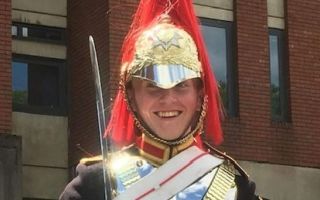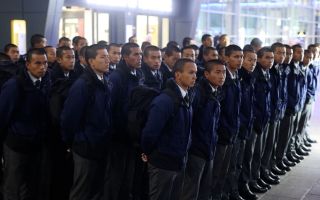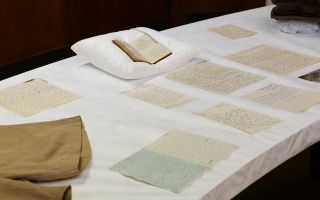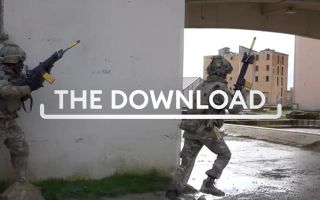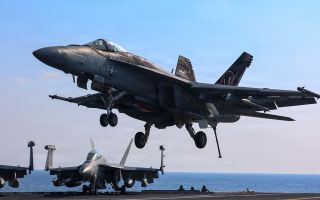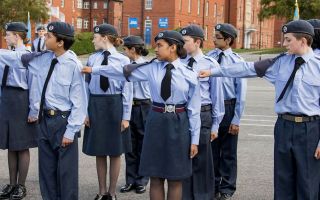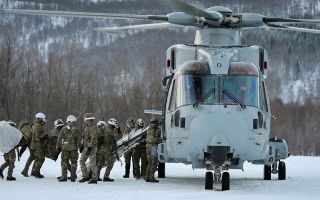Black Tuesday: Al Murray delves into the pivotal day during Op Market Garden
Al Murray, best known for his character the Pub Landlord and his podcast We Have Ways Of Making You Talk, has released a book that closely examines one pivotal day during the Battle Of Arnhem – 19 September 1944, also known as Black Tuesday.
Eighty years ago, Allied forces conducted Operation Market Garden, a bold, partially successful, nine-day combined air and land operation in the German-occupied Netherlands – Market was the airborne phase and Garden was XXX Corps' attempt to link up with them.
The goal was to capture nine vital bridges at locations including Son, Veghel, Grave, Nijmegen, Oosterbeek and Arnhem – Market Garden's ultimate objective – from where they would push into northern Germany to bring about a swift end to the Second World War.
While Op Market Garden is considered by many historians to have been ill-fated from the start, Arnhem: Black Tuesday author Mr Murray disagrees, saying: "I don't think it's completely doomed to failure.
"It's on this day where the scales of destiny go bonk against it ever possibly succeeding, unfortunately.
"Everyone writes about that it was doomed and fated and it was never going to work.
"Well, did they think that on the Tuesday? No."
With his new book, Mr Murray was eager to offer something fresh for his readers, as Op Market Garden and the Battle of Arnhem have been extensively covered by historians and journalists since 1944 and are the focus of Richard Attenborough's 1977 epic war film A Bridge Too Far.
Therefore, the Second World War expert decided to focus on just one day – Black Tuesday.
As Mr Murray explains in his book, while Black Tuesday was just 24 hours of the nine-day Op Market Garden, so many things happened that day that affected the outcome of the operation.
Without the benefit of knowing what was to come and what was going on around them, the men of 2nd Battalion Parachute Regiment (2 Para) doggedly continued to defend their position at the road bridge in Arnhem.
However, at this point they did not realise they wouldn't be relieved after two or three days by XXX Corps as promised.
Due to critical problems with communication, as the radios were sporadic at best, 1st Airborne Division's commander, Major General Roy Urquhart, had returned to Divisional HQ to gain clarity on the progress of the operation.
However, his absence on 19 September 1944 had bitter consequences for 2 Para which, as Mr Murray says, was having "its muscles, its sinews, its eyes, its ears, its brains, all... tested to their very limit on Black Tuesday".
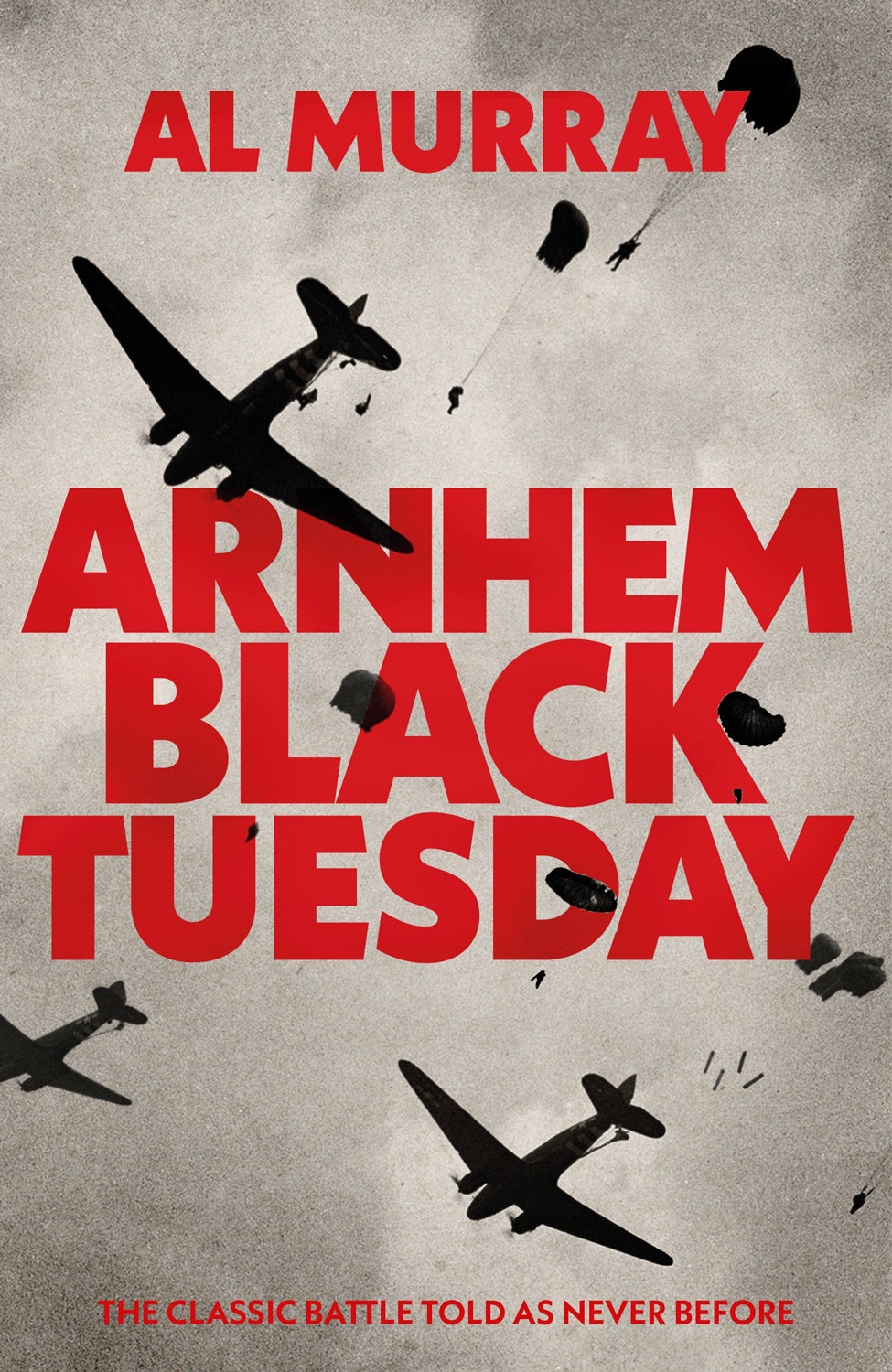
Mr Murray quotes Maj Gen Urquhart as saying: "For in the desperate and confused hours before us it became only too painfully clear that what was needed above all else was some co-ordination among the units fighting their way into Arnhem.
"If I had known this, I would have taken control on the spot."
The airborne soldiers defending the bridge at Arnhem were unaware that upon his return he had become trapped along with 3rd Battalion's Captain Jimmy Cleminson in the loft of a house (14 Zwarteweg) while evading the Germans.
After two days of defending Arnhem Bridge, the exhausted British soldiers heard rumours their leader was either dead, wounded or captured.
Additionally, a personality clash between the two brigadiers at the bridge – Brigadier John Hackett and Brigadier Philip Hicks – led to disagreement on what course of action to take.
Maj Gen Urquhart said: "And now, in this fateful afternoon of Tuesday 19 September, everything began to go awry."
When Mr Murray delved into his extensive research on the Battle of Arnhem – sparked by reading war diaries for an O-Level project at the age of 15 – he realised that the hopefulness at the start of Black Tuesday was gradually overshadowed by a series of losses, leading to a desperate situation that called for drastic action.
With violence, panic was prevented
Disappointed not to be called on for D-Day and after 17 operations, the men at Arnhem were desperate to fight the Nazis.
As Mr Murray says, this made them "evaluate the risk differently to the way that maybe they should have done".
When their efforts didn't pay off due to factors such as communication failures, a lack of ammunition and XXX Corps being nowhere to be seen as it struggled to make its way to Arnhem, morale was low.
Of this emotional and physical torment, Mr Murray says: "You've got the blowback of the mental strain of thinking you can achieve something and then failing.
"And then what does that do to you? What's that like to carry around with you?
"There are moments of real panic on the day."
And in warfare panic is contagious.
Left to spread, panic and fear could make soldiers freeze in the face of danger – certainly less than ideal during a brutal battle.
During his research, Mr Murray read A Drop Too Many, a memoir by Major General John Frost who, as a lieutenant colonel at Arnhem, led 2 Para.
The soldier said: "Fear is rather a dirty word in the best military circles, and is seldom, if ever, mentioned.
"Yet as an emotion experienced by everyone to a greater or lesser degree, it is a most potent factor in war."
So senior officers took drastic action when it looked like chaos was about to take control.
Mr Murray writes of when the men of 4th Parachute Brigade were retreating from a vicious firefight in the woods, the brigade major stepped forward and said: "I'll shoot anyone who runs."
Mr Murray said: "And you think, this is a desperate situation because he doesn't want to have to do that.
"He doesn't want to have to say that – and he certainly doesn't want to have to do it.
"'But with violence, panic was prevented' is what the war diary says."
Major Robert Cain
This can be seen in the actions of Major Robert Cain, commander of 2nd Battalion South Staffordshire Regiment, who was awarded the Victoria Cross after the Battle of Arnhem – the only VC recipient of five from the battle not to receive his award posthumously.
His citation in The London Gazette on 31 October 1944 describes Maj Cain as displaying "superb gallantry" and "valour" and states that his "coolness and courage under incessant fire could not be surpassed".
However, Mr Murray discovered in Lieutenant Colonel William Thompson's memoir that on Black Tuesday on the grounds around the Old Church, Maj Cain was a "mess" and so ordered him to "pull himself together" and get his men into a defensive posture.
Mr Murray said: "Cain then recovers and becomes one of the most fabled figures in British military history and it just shows these guys are human.
"He's not Achilles, you know. He's not some sort of shining warrior of brilliance.
"He's a guy who completely loses it, can't cope and then finds something in himself and goes on to be this legendary figure of gallantry and bravery.
"And that, I think, makes them all more human."
Arnhem: Black Tuesday by Al Murray is available to buy here.

